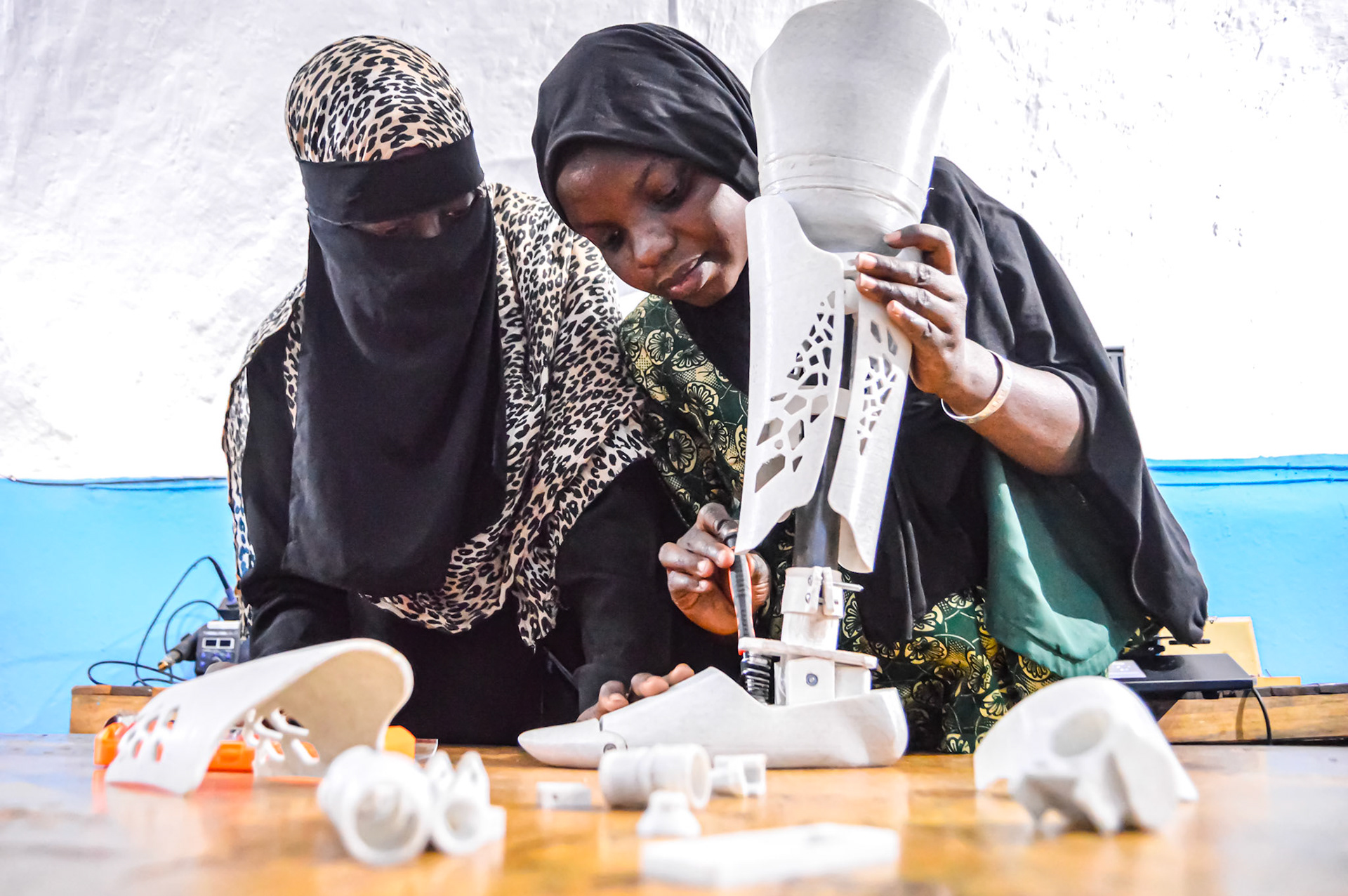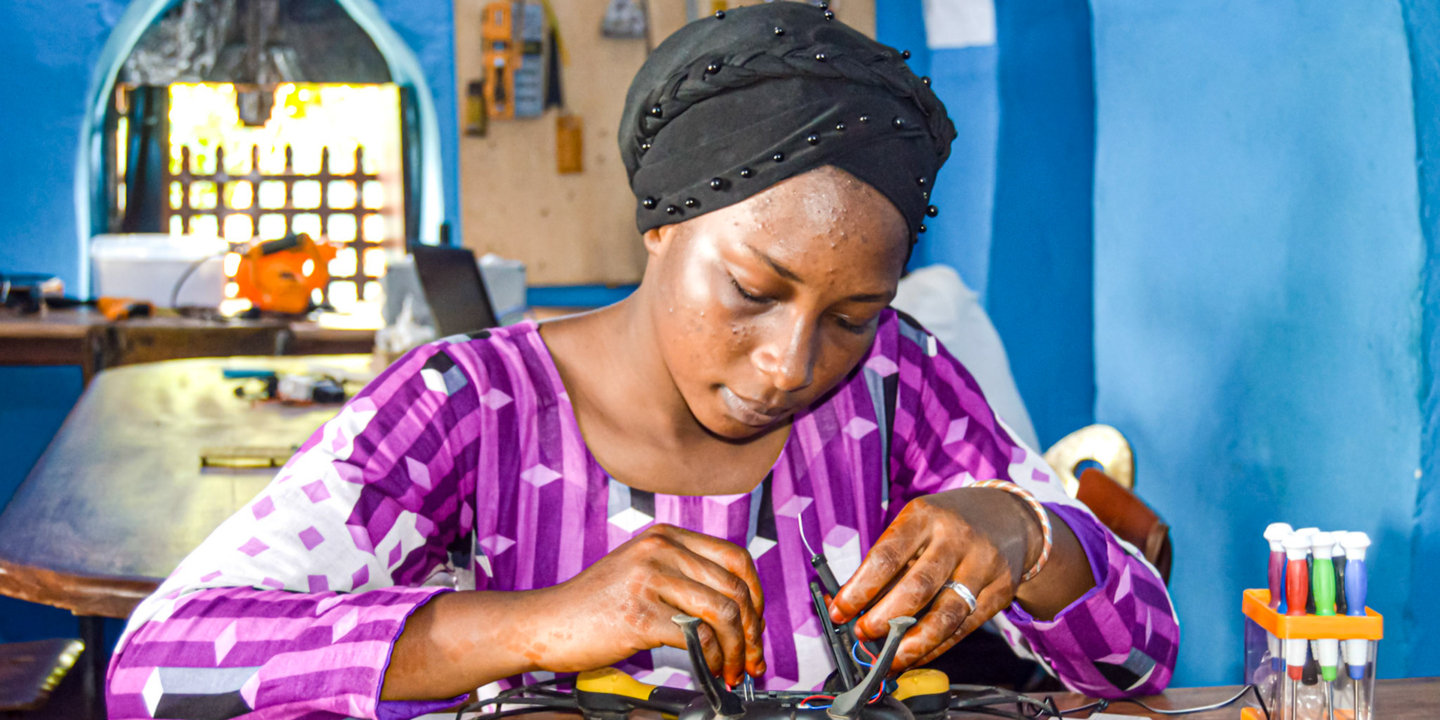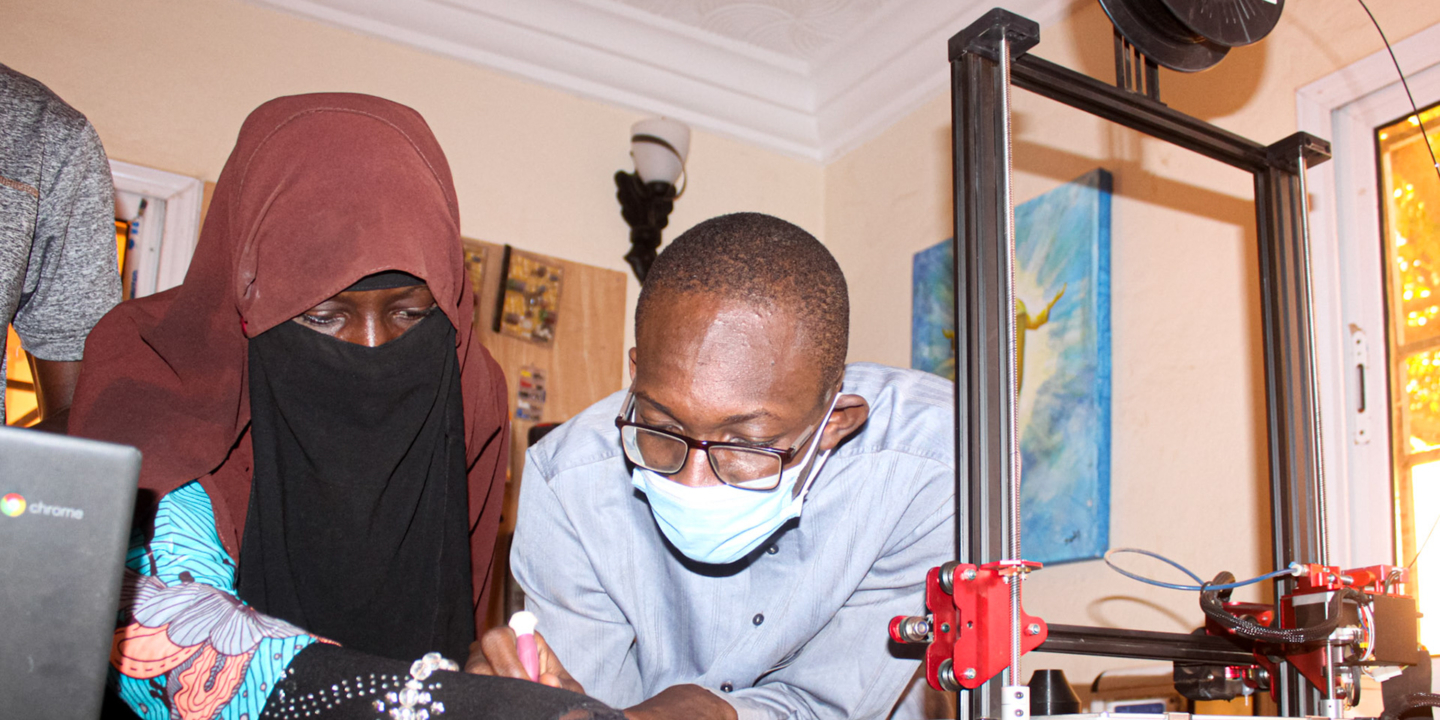Kabakoo Academies: Catalyzing localized innovation

/ Boubou, Kabakoo learner
-
TYPE OF GRANT:
Scaling -
FUNDING PERIOD:
2022-2024 -
GEOGRAPHIC FOCUS:
Mali & francophone West Africa
Problem
Every single year, more than 10 million young Africans struggle to enter the labour market on the continent. As only around 3 million jobs are created by the formal sector yearly, more than 70% of the youths will find either unemployment or the precariousness of informal and non-decent jobs. This is mainly because most young people do not have access to relevant high-quality and affordable learning offerings. This problem particularly affects marginalized populations such as non-urban and less-educated youths as the small amount of available formal jobs are reserved to the urban elites. Moreover, women are also particularly affected as they face norms-based discrimination in access and opportunities to train. The challenge of enabling decent youth employment through locally relevant learning and training is even more acute in Sahelian countries due to the multiplicity of socio-political and economic crises. In Mali, for example, the formal sector only absorbs around 5% of the yearly 300 000 job seekers. To compound the problem, Africa is also the most vulnerable continent to climate change. In fact, 7 of the 10 countries most vulnerable to climate change are in Africa and this increases the need for locally relevant and sustainable learning offerings.
Solution
Kabakoo intends to solve the problem by affordably connecting young people in Africa to future-proof learning opportunities, no matter where they live or who they know. Kabakoo offers blended-learning programs, equipping local youths to catalyze localized innovation while creating value and jobs in the area of digital and distributed small-scale manufacturing. Their offer differs from most alternatives on three dimensions. First, following a “highdigenous” approach, Kabakoo blends high-tech and indigenous knowledge to train young Africans to solve real-life problems through a project-based methodology. Second, they extend the typical educator profile by engaging a local and worldwide network of professionals as mentors for Kabakoo learners. Third, learning at Kabakoo is self-paced and data-driven. Using the Kabakoo digital app, learners self-evaluate and learn to reflect. Beyond tech skills, the holistic model also focuses on growth mindset and active learning.
Previous research has found that in many parts of Africa, education is disconnected from the local contexts and knowledges. Kabakoo closes this gap by fusing state-of-art tech with local and indigenous knowledges. In addition to making learning work by connecting it to the local contexts, Kabakoo aims to bring us further on the paths towards climate change mitigation, sustainability, and thriving ecosystems as indigenous knowledges are integrative and holistic by nature.
From day 1, Kabakoo was data-driven and has monitored effects on (entrepreneurial) skills, employment, productive assets as well as mindsets. Now, Kabakoo is in the process of starting an RCT with the University of Paderborn (Germany) to fully evaluate the effectiveness of its approach and will track outcomes for at least 5 years post-training to assess impact longevity.
We are collaborating with knodel foundation on this grant.
-
8xearning of their pre-Kabakoo levels
-
54%of learners realized they can solve their communities problems themselves
-
22%of learners didn’t finish high school
About the organization
Kabakoo Academies was set up in 2018 by Michèle Traoré and Yanick Kemayou. Yanick experienced the shortcomings of an inadequate education system when he couldn’t find decent employment and was forced to leave his home country Cameroon at the age of 18. The young organization has the mission to enable Africa’s youth to own the 4th Industrial Revolution for creating sustainable futures. The team of 10 is based in Bamako, Mali and Paris, France and is as diverse as its learners with a mix of Kabakoo alumni, former UN employees and media professionals.


